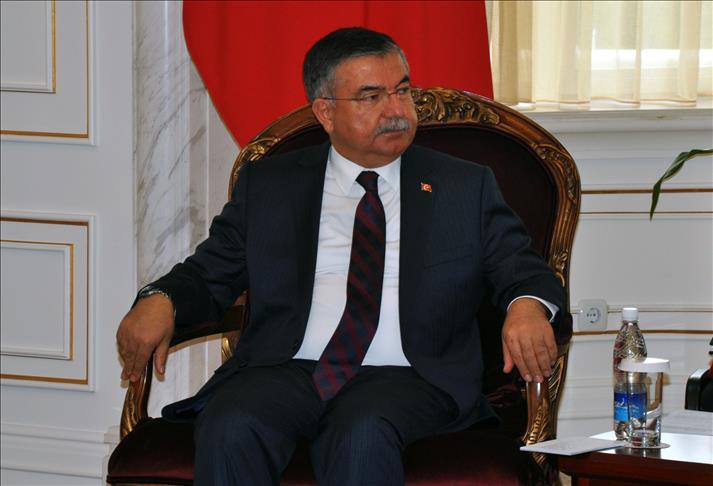
ISTANBUL
By Esra Kaymak Avci
As the Turkish parliament is set to debate on joining the U.S.-led airstrike operations against ISIL in Syria and Iraq on Thursday, the country has to maneuver skillfully to advance its own interests in the region, as it operates a shift in strategy.
Initially, Turkey had indicated it wanted no part in joining in strikes against ISIL, whether in Iraq or in Syria.
In August, the Turkish defense minister, Ismet Yilmaz, had stated that Turkey was "not supporting a possible U.S.-led strike against ISIL as 49 Turkish personnel were captured by the group."
"Formerly, Turkey had some risks with ISIL, the first of these being the Turkish nationals taken hostage. Second was the possibility of ISIL expanding its terrorist actions into Turkey as the group is close to the border," former commander in the Turkish army and academic, Atilla Sandikli from the Wise Men Center for Strategic Studies told Anadolu Agency.
The hostage crisis had posed a set of unique challenges for Turkish foreign policy makers seeking to craft a new policy for the conflicts in Syria and Iraq, UK-based Royal United Services Institute's Aaron, Stein adds.
"In Syria, Turkey had strongly advocated for the U.S. to use military force to topple Syrian dictator Bashar al-Assad. In Iraq, Ankara opted for a more cautious policy and had spoken out against the prospect of U.S. airstrikes," he says.
The situation changed when the 49 kidnapped nationals from the Mosul consulate arrived in Turkey, safe and sound, following a Turkish rescue operation on September 20.
Furthermore, Ankara has opened its borders to more than 150,000 essentially Kurdish refugees who have sought shelter in the country since ISIL militants recently launched attacks against the Syrian border town of Kobani, bringing the fighting right at Turkey’s doorstep.
Indeed, last Sunday, at least three people were injured after a mortar shell fell on a house in the southeastern Turkish town of Suruc - just a few kilometers away from the Syrian border.
During a visit to the UN at the end of September, Turkish President Recep Tayyip Erdogan stated that, "Turkey would do whatever needs to be done as a part of the international coalition against ISIL."
If Turkey wants to participate in the coalition now, it has to lead the operation so that it can solve the regional problems according to its own interests, Sandikli stresses.
"Now, Turkey wants to support the Free Syrian Army in the region, but with one condition - to prevent Kurdistan Workers' Party, or PKK, to be armed in the region," says Sandikli.
Turkey's Foreign Minister Mevlut Cavusoglu had indeed announced that the outlawed PKK group should not receive international weapons meant for use against ISIL in Iraq.
As the Kurdish peshmerga have become indispensible to the U.S.-led coalition in fighting ISIL in Iraq, they have gained more power in the region.
"To be sure, Turkey was ill prepared for ISIL’s’ rapid advance – and the subsequent Kurdish take-over of Kirkuk – but the Kurdistan policy has placed Ankara in the best position to weather the storm of any Kurdish move to declare independence. As of now, Turkey is eager for Iraq to retain its territorial integrity."
According to Stein, Turkey has followed a successful policy with regards to the Kurdistan Workers' Party issue.
Ankara has reasonably assumed that the prospect of Kurdish independence is still a ways off, and has instead embraced, "a concept of blurred borders, whereby Kurds living in the Iraqi Kurdish region and Turkey can more easily move back and forth over the borders of other Kurdish majority regions in neighboring countries," Stein underlined.
Turkey is in the midst of a solution process, aimed at ending a more than 30 year-old conflict with the outlawed Kurdistan Workers' Party, or PKK, which is listed as a terrorist group by Turkey, the U.S. and the European Union.
Anadolu Agency website contains only a portion of the news stories offered to subscribers in the AA News Broadcasting System (HAS), and in summarized form. Please contact us for subscription options.

